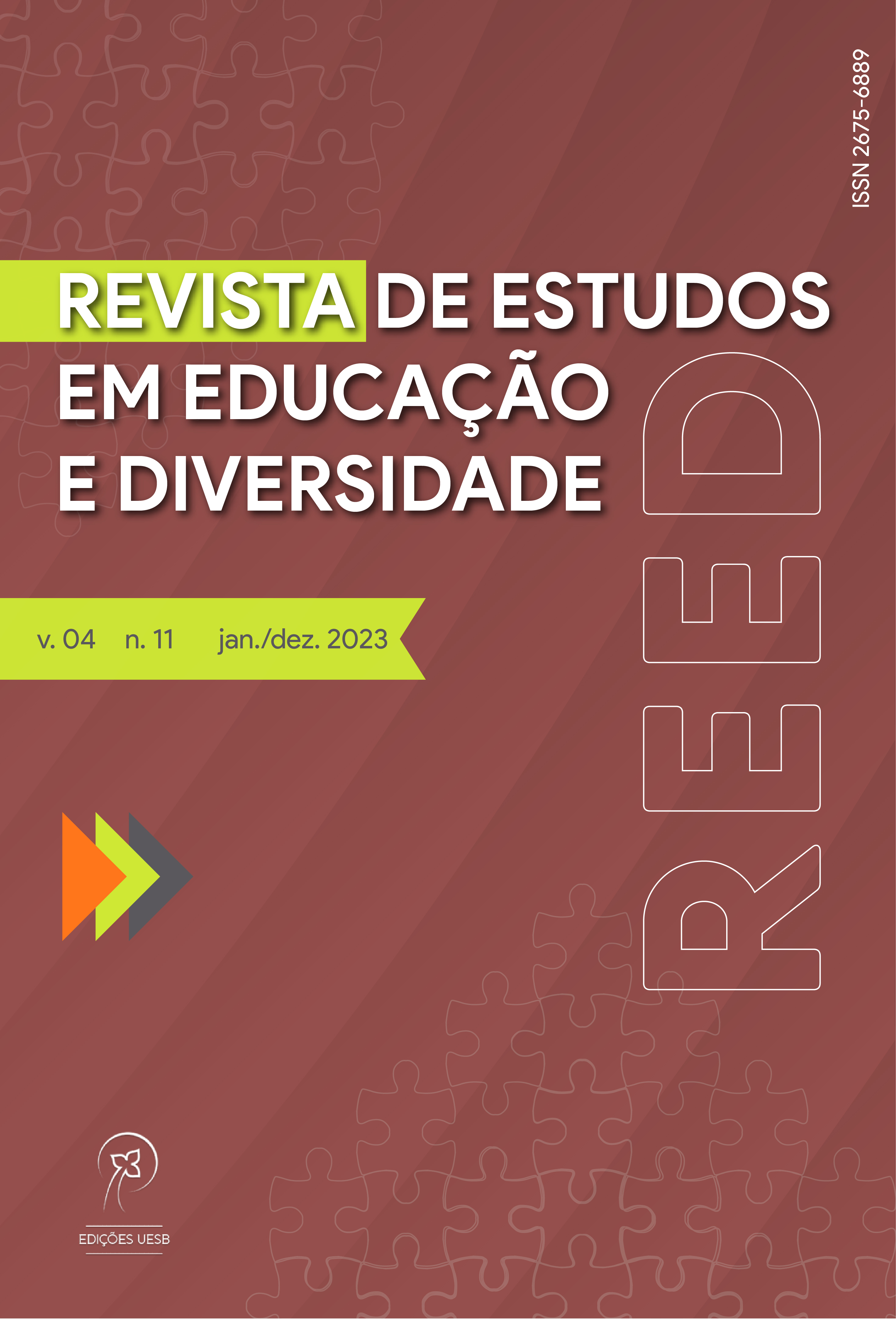Contributions of the Supervised Internship in Chemistry to teacher training: post-pandemic experience report
DOI:
https://doi.org/10.22481/reed.v4i11.14058Keywords:
supervised internship, practice, teacher training, chemicalAbstract
This work is the result of experiences during the Supervised Internship in Chemistry I by a Chemistry Degree student from a Bahian University, in the context of post-pandemic, in 2023. With the intention of contributing to the construction of teaching professionals, as well as, in the development of teaching skills, in the period of four months, 11 classes were monitored in which observations of educational dynamics were made and some co-participation activities in Chemistry classes at a public school in Itabuna/BA. For The theoretical-practical reflections were based on the texts of Carvalho (2012) and the diary of virtual board of the Chemistry graduate. During this period it was possible to identify the professional exchange provided by access to the educational reality experienced by the licensing. Thus, through discussion of the transformations that subsidized part of the construction of their own educational concepts and teaching methodology student, it was possible to notice the contributions of the experiences mediated by the discipline of Supervised Internship in Chemistry I for training in the development of their teaching skills that the profession requires, as well as the humanization of practice teacher, the importance of analyzing educational theories as a whole to guide their practices and the construction of their professional identity in initial training.
Downloads
References
AUSUBEL, David Paul. A aquisição e retenção de conhecimento: uma visão cognitiva. Springer Ciência e Mídia de Negócios, 2012.
CARVALHO, Anna Maria Pessoa de. Os estágios nos cursos de licenciatura. São Paulo: Cengage Learning, 2012.
CEEP. Comunidade Escolar. Projeto Político Pedagógico. Itabuna, BA, 2019.
HERREID, Clyde Freeman. O que constitui um bom caso. Revista de Ensino Universitário de Ciências, v. 3, 1997.
IZA, Dijnane Fernanda Vedovatto et al. Identidade docente: as várias faces da constituição do ser professor. Revista Eletrônica de Educação, v. 8, n. 2, p. 273-292, 2014.
LIMA, Letícia Dayane de. Teoria Humanista: Carl Rogers E a Educação. Caderno de Graduação-Ciências Humanas e Sociais-UNIT-ALAGOAS, v. 4, n. 3, p. 161-161, 2018.
MOREIRA, Marco Antonio. A teoria da aprendizagem significativa e sua implementação em sala de aula. Editora Universidade de Brasília, 2006.
NÓVOA, António. Firmar a posição como professor, afirmar a profissão docente. Cadernos de Pesquisa, v. 47, n. 166, p. 1106-1133, 2017.
PONTE, João Pedro da. Investigar a nossa própria prática. Refletir e investigar sobre a prática profissional, p. 5-28, 2002.
ROMÃO, Gustavo Salata; SÁ, Marcos Felipe Silva de. Como elaborar questões de múltipla escolha de boa qualidade. Femina, v. 47, n. 9, p. 561-4, 2019.
SÁ-SILVA, Jackson Ronie; ALMEIDA, Cristóvão Domingos de; GUINDANI, Joel Felipe. Pesquisa documental: pistas teóricas e metodológicas. Revista Brasileira de História & Ciências Sociais, v. 1, n. 1, p. 1-15, 2009.
SÁ, Luciana Passos; FRANCISCO, Cristiane Andretta; QUEIROZ, Salete Linhares. Estudos de caso em química. Química Nova, v. 30, p. 731-739, 2007.
SCALABRIN, Izabel Cristina; MOLINARI, Adriana Maria Corder. A importância da prática do estágio supervisionado nas licenciaturas. Revista Unar, v. 7, n. 1, p. 1-12, 2013.
SILVA, Haíla Ivanilda; GASPAR, Mônica. Estágio supervisionado: a relação teoria e prática reflexiva na formação de professores do curso de Licenciatura em Pedagogia. Revista Brasileira de Estudos Pedagógicos, v. 99, n. 251, p. 205-221, 2018.
WARTHA, Edson José; SILVA, EL da; BEJARANO, Nelson Rui Ribas. Cotidiano e contextualização no ensino de química. Química Nova na Escola, v. 35, n. 2, p. 84-91, 2013.
Downloads
Published
How to Cite
Issue
Section
License
Copyright (c) 2023 Revista de Estudos em Educação e Diversidade - REED

This work is licensed under a Creative Commons Attribution 4.0 International License.
You are free to:
Share - copy and redistribute the material in any medium or format; Adapt - remix, transform, and build from the material for any purpose, even commercially. This license is acceptable for Free Cultural Works. The licensor cannot revoke these freedoms as long as you follow the terms of the license.
Under the following terms:
Attribution - You must appropriately give credit, provide a link to the license, and indicate if any changes have been made. You may do so in any reasonable way, but not in a way that suggests that you or your use is endorsed by the licensor.
There are no additional restrictions - You cannot apply legal terms or technological measures that legally restrict others to make any use permitted by the license.






